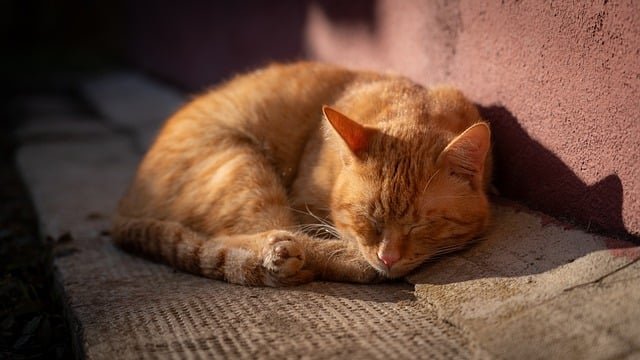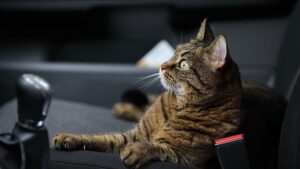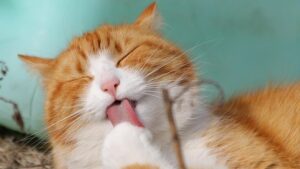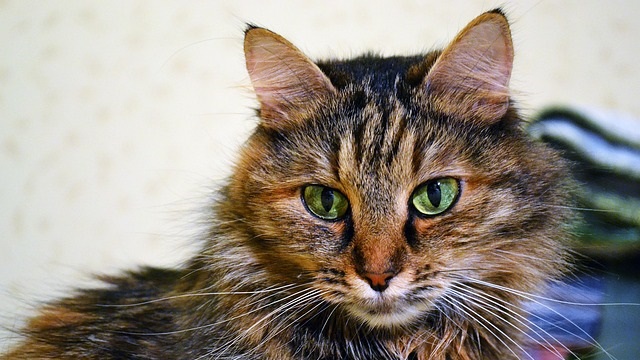Cat Sleeps a Lot: What’s Normal and When to Worry
Does your cat always seem to be sleeping? You probably wonder “Do cats sleep a lot?”, and the answer is yes.
A cat’s life is often a cycle of sleeping, eating, grooming, and playing. However, sometimes, it can be hard to tell the difference between a lazy afternoon nap and a sign that something might be wrong.
In this article, we’ll help you understand the normal sleep habits of cats, explain the various reasons behind their lengthy slumber, and, most importantly, provide clear signs to watch for that could signal a problem.
- Cats sleep 12 to 16 hours daily, which is normal behavior for them.
- Sleep patterns can vary due to age, activity level, and environment.
- Sudden changes in sleep habits may signal potential health issues.
Key Takeaways
- Cats typically sleep between 12 to 16 hours a day, and sometimes even more. This is completely normal cat behavior.
- Factors like age, activity level, and environment can influence how much your cat sleeps.
- Sudden and significant changes in your cat’s sleep habits can be an indicator of a health issue.
- Monitoring your cat’s sleep patterns with a pet health tracker like the Maven Pet Monitor can help you spot subtle changes early on and ensure your pet gets taken care of quickly.
Do Cats Sleep a Lot?
Yes, they do. It’s normal for a cat to sleep 12 to 16 hours per day. Some cats, especially kittens and older cats, may even sleep up to 20 hours a day.
Why Does My Cat Sleep a Lot?
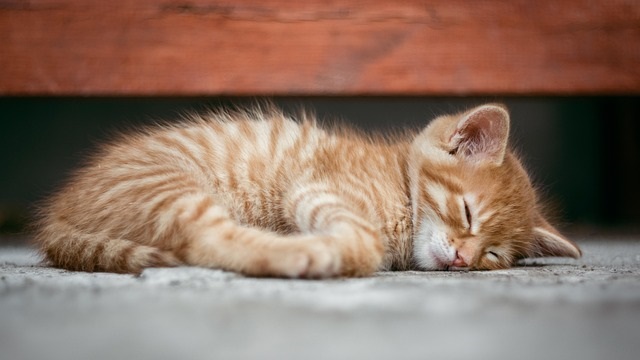
There are a few reasons that explain cats’ sleeping behavior, from ancestry to environment.
Hunter’s Instinct: Cats are natural predators. Their hunting behavior, even when it’s just pouncing on a toy mouse, requires a huge amount of energy. Napping allows them to rest and recharge for their next “hunt.”
Energy Conservation: Cats need a lot of energy for their quick bursts of speed and agility. Long periods of rest are essential for them to recover and maintain their predatory instincts.
Boredom: Indoor cats, especially those without enough stimulation, may sleep more out of boredom. A lack of engaging toys, scratching posts, or interactive playtime can lead them to fill their time with naps.
Is It Normal for Cats to Sleep a Lot?
Absolutely. A healthy cat sleeps several hours per day, but they are still active, playful, and have a good appetite.
What you should pay attention to if you’re concerned and wondering “why does my cat sleep a lot” is if there’s a noticeable change from their typical routine.
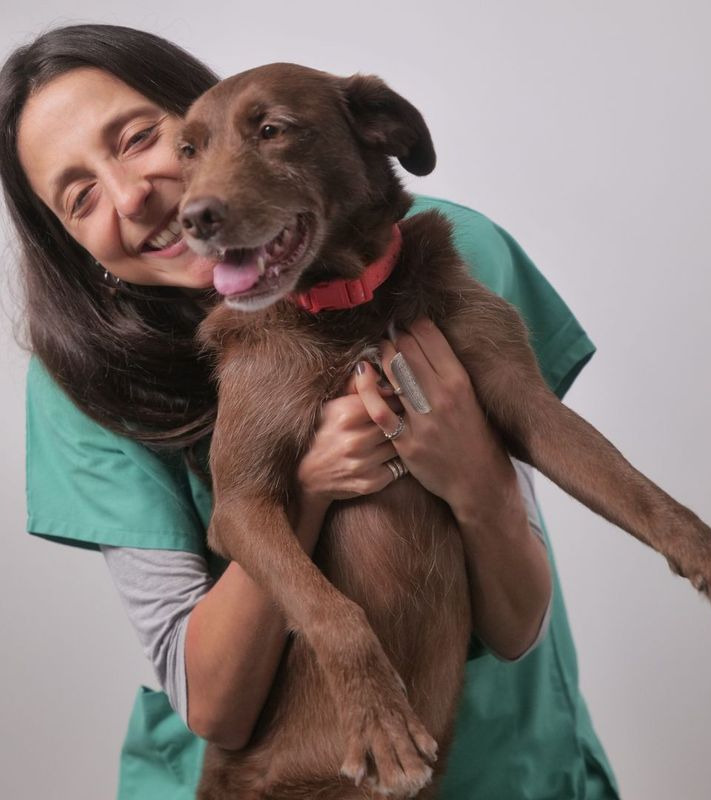
Is Maven right for your pet?
Take the quiz and see how Maven can support your pet’s wellness journey.
Factors That Influence Cat Sleep
Age
Kittens and senior cats tend to sleep the most. Kittens need sleep for growth and development, while older cats may sleep more due to joint pain, reduced energy levels, or other age-related conditions.
Activity Level
A very active cat that spends its day chasing birds and climbing cat trees will need more rest than a sedentary one.
Environment
A comfortable, warm, and secure environment encourages more sleep. Cats often seek out sunny spots, cozy blankets, or quiet corners for their naps.
Health
Certain health conditions can cause a cat to sleep more. This is often accompanied by other symptoms.
When Sleeping Too Much Could Be a Problem
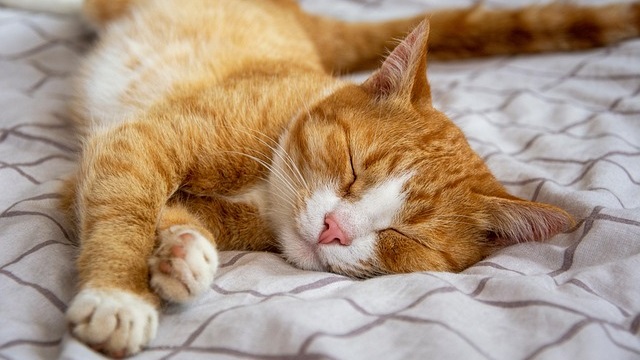
“Cats do sleep a lot, but sudden increases in sleep time – or changes in how they rest – can be an early sign of illness. Tracking patterns helps us distinguish normal from concerning behavior.” — Carolina Domingues, DVM.
While a lot of sleep is normal, a significant, sudden change in sleep behavior can be a warning sign. Here are some red flags that may require a trip to the vet:
- Sudden change in sleep habits: A normally active cat suddenly becoming lethargic and sleeping all day.
- Hiding more often: A cat that used to sleep in a common area now hides away in a secluded spot to sleep.
- Lack of interest: Not interested in playtime, food, or treats that they normally love.
- Change in appetite or water intake: Eating or drinking much more or less than usual.
- Changes in grooming habits: Less self-grooming, leading to a dull or matted coat.
- Limping or reluctance to move: Signs of pain or discomfort.
How the Maven Pet Health Monitor Tracks Sleep and Detects Changes
Since a “sudden change” is the key indicator of a problem, how can you know for sure what a “normal” day looks like for your cat?
This is where a cat health tracker can be an invaluable tool.
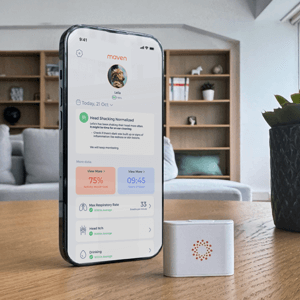
Maven Pet
Health Monitor
#1 Vet-recommended pet monitor! Tracks activity, rest, respiratory rate, water intake, scratching and other health indicators 24/7
The Maven Pet Health Monitor provides a non-invasive way to track key behaviors, including:
- Sleep Duration: The monitor tracks exactly how many hours your cat sleeps each day, providing a clear picture of their habits.
- Resting and Active Time: It differentiates between periods of rest and periods of activity, helping you see if their overall energy level has changed.
- Behavioral Trends: The tracker presents this data in easy-to-read charts and graphs. This allows you to spot trends, such as a gradual increase in sleep time over a month, that you might not notice on a day-to-day basis.
So, instead of telling your vet, “I think my cat is sleeping more,” you can show them objective data. This information helps your vet make a more informed diagnosis.
Recap
Remember, a cat that sleeps a lot is a happy, healthy cat.
Pay attention to your pet’s unique personality and habits. If you observe a sudden, significant change in their sleep patterns or notice other concerning symptoms, don’t hesitate to contact your vet.
By staying attuned to your cat’s routine and using tools like the Maven Pet Health Monitor to track their health, you can ensure they live a long, happy, and well-rested life.
Maven Pet focuses on improving the quality of life of our pets with technology, using artificial intelligence (AI) to enable proactive pet care. By accurately collecting and monitoring pet data 24/7 and flagging any irregularities, Maven Pet empowers pet parents and veterinarians to stay ahead of potential health issues, ensuring the well-being and longevity of our beloved companions.

